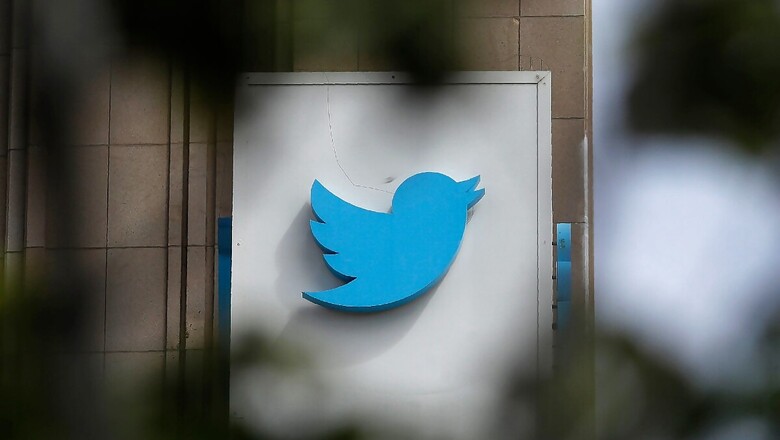
views
Remember the Magna Carta? In school we were taught that it was the great herald of freedom. After democratic Athens and the Mahajanapadas were snuffed out, the Magna Carta was that spark of democracy rekindled after 1500 years that led to British constitutionalism and freedom. All codswallop—the Magna Carta not just increased the depredations on the English people by venal and rapacious barons, but led to two civil wars and a full-blown foreign invasion. Britain was ruined, its people killed or massacred in droves, all in the name of “freedom and democracy”.
Today we’re facing that same situation in India. In the name of freedom, an equally venal, arbitrary and rapacious foreign corporation is effectively waging war against the Indian state, all wrapped up in the garb of “freedom of expression”. That company—Twitter—has a history of opacity, partisanship, cartelisation and ruthlessly suppressing ideas that don’t suit it. Yet, we are meant to believe that a tiny shady board sitting in San Francisco, California is somehow more responsive and accountable to the Indian people than a government elected by 900 million registered voters. Apparently our freedom of expression is under threat from this elected government while a company sitting over 12,000 kilometres away that does not have a single empowered employee in its India offices is fighting for the people.
What we are seeing today is tech-feudalism and a return to the dark ages. Seldom in history have barons or private corporations grown so powerful that they completely eclipse nation states and legal authorities. This feudalism unlike its medieval counterpart is far more insidious, capable of far greater individual control, threatens personal liberties and is infinitely more dangerous. Consider this. Today, tech companies can be worth more than the GDP of several nation states combined. While previously only one or two entities would exist at any given point in time, the tech boom has meant we have some companies listed at over $2 trillion, at least 10 over $1 trillion and hundreds over $100 billion. Cumulatively, never in history has so much wealth been concentrated in the hands of the unelected or the unaccountable.
Perhaps the more worrying aspect of this is that through data mining and big data, these unelected unaccountables have unprecedented access to how people think, an incredible ability to track and monitor behaviour and invest heavily in sophisticated psychology to influence or induce certain kinds of behaviour. This kind of unprecedented wealth accumulation by itself is not destabilising. However, when you combine this with the indispensability of technology and the massive advances in data gathering and crowd psychology—the results can be quite terrifying.
While sci-fi movies like Terminator would have you believe that the “singularity” was a point in time where machines became self-aware and took over the world, the reality is corporate and private interests have achieved this singularity—one where their fusion of wealth, data, psychology and intrusive powers are so great that they threaten systems of governance, slowly and painfully built up over years, like never before. Yet whatever unpredictable dystopian future this has in store for us, what is predictable is that it takes us back a few hundred years: to endemic conflict, social strife, pogroms, an end of the states’ monopoly on violence and of all due process and legal protections.
Don’t take my word for it, but do think about it. How is it that Blackberry’s BBM could’ve been so disproportionately responsible for the 2011 London Riots? How is it that Twitter plays a disproportionate role in the events at Tahrir Square the same year? The removal of a government that Twitter actually takes pride in. How is it that a cartelised social media environment has propagated narratives that have led to large-scale violence like Black Lives Matter and Antifa? How is it that criticism of these same groups is uniformly censored across platforms? While many happily point to the role of Radio Rwanda in encouraging the horrific 1994 genocide there, they conveniently forget the role of social media in stoking up large-scale social strife? Why is it that those same people who screech about trespasses on individual liberty cheer when social media giants act as judge, jury and executioner and consider themselves over and above Indian law, while refusing to cooperate with Indian institutions legally mandated for the purpose?
Yet despite overwhelming evidence of not just a correlation, but also a direct causal link between the growth of social media and an increase in civil strife and violence, we still have not been able to impose much-needed regulation or controls on these horsemen of the apocalypse. At what point will they be tamed? At what point will their ability to influence societal norms and actions be curtailed?
Let’s be clear—states are not perfect and in governance-deficit states like India, there is a significant lack of trust in institutions. Yet for all its faults, it says a lot when a growing number of people in governance-deficit India are more willing to trust their weak institutions than a bunch of transparently two-faced foreign companies? Make no mistake. What you think is a minor jurisdictional dispute between a government and a corporate behemoth has much wider anthropological ramifications for mankind as a whole. What is at stake is a carefully constructed system of checks and balances and restraints versus a dystopian nightmare. If we allow this to continue we will see India sink into the same state of collapse that Britain did in the calamitous 13th century.
Read all the Latest News, Breaking News and Coronavirus News here. Follow us on Facebook, Twitter and Telegram.



















Comments
0 comment